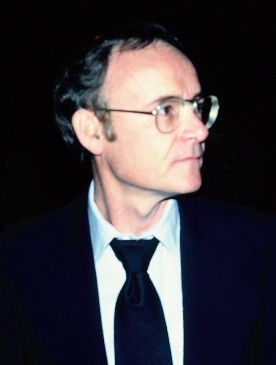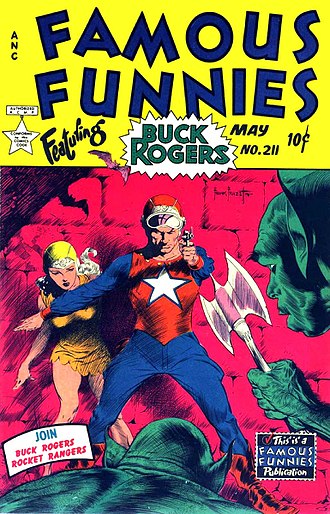Discover Your Roots
SIGN UPDiscover Your Roots
SIGN UPBuck is a male name of English origin that carries the meaning of "Deer" and "Cowboy." The name Buck may also be associated with various references in popular culture, including fictional characters in movies, television series, and literature, as well as notable people and places in the United States. Additionally, the name has been adopted by several individuals as a stage or ring name. Buck is also linked to specific terms such as a cocktail, a crater on Venus, and various other uses in software and technology. This name has a strong connection to nature and the American frontier, representing characteristics of strength, resilience, and ruggedness.

Buck Owens, born Alvis Edgar Owens Jr., was a renowned American musician, singer, and songwriter, best known as the lead singer for Buck Owens and the Buckaroos. Born on August 12, 1929, in Sherman, Texas, he eventually settled in Bakersfield, California, where he pioneered the Bakersfield sound, a distinctive style of country music. With an impressive 21 No. 1 hits on the Billboard country music chart, Owens and the Buckaroos became synonymous with infectious choruses, twangy electric guitar, and high, two-part vocal harmonies. In addition to his musical career, Owens co-hosted the popular CBS television variety show Hee Haw from 1969 to 1986.His early career saw him co-hosting a radio show, performing at local bars, and eventually becoming a truck driver, all while honing his musical skills. In 1958, he met Don Rich, a collaboration that significantly impacted his career. Their partnership led to several chart-topping hits, including "Under Your Spell Again" and "Above and Beyond."Owens' influence on country music is undeniable, and his contributions have earned him a place in the Country Music Hall of Fame and the Nashville Songwriters Hall of Fame. Despite personal tragedies, including the loss of his close friend and collaborator, Don Rich, Owens made a successful comeback in the late 1980s, solidifying his legacy as a country music icon

Buck Henry, born Henry Zuckerman, was an American actor, screenwriter, and director known for his significant contributions to film and television. He gained recognition as a co-writer for the iconic film "The Graduate" and received an Academy Award nomination for Best Adapted Screenplay. Henry's versatile talent extended to acting, with appearances in notable films such as "Catch-22," "The Owl and the Pussycat," and "What's Up, Doc?" Additionally, he co-directed "Heaven Can Wait" with Warren Beatty, earning an Academy Award nomination for Best Director. Henry's television career was equally impressive, co-creating the beloved series "Get Smart" with Mel Brooks and earning a Primetime Emmy Award for Outstanding Writing for a Comedy Series. His extensive writing credits encompassed a range of genres, including comedy, romance, satire, and thriller. Beyond his professional achievements, Henry's early life and education at The Choate School and Dartmouth College, as well as his military service during the Korean War, shaped his journey to success. With a rich legacy in entertainment, Buck Henry's impact on the industry remains enduring and influential.

Buck Rogers is a science fiction adventure hero and feature comic strip created by Philip Francis Nowlan in 1929. The character made his first appearance in daily U.S. newspapers on January 7, 1929, and went on to feature in Sunday newspapers, international newspapers, books, radio adaptations, serial films, television series, and other media formats. The Buck Rogers strip, published from 1929 to 1967 and syndicated by John F. Dille Co. (later called the National Newspaper Syndicate), became incredibly popular, inspiring other science fiction strips such as Flash Gordon, Brick Bradford, Don Dixon and the Hidden Empire, and Speed Spaulding. Buck Rogers is credited with introducing the concept of space exploration into popular media, following in the footsteps of literary pioneers like Jules Verne and H. G. Wells. The character's adventures in comic strips, movies, radio, and television played a significant role in shaping American popular culture and familiarizing audiences with outer space as a swashbuckling adventure setting. The strip's publication history, including its syndication to numerous newspapers and its adaptation into various formats, further solidified Buck Rogers' status as an iconic figure in science fiction.

William Nathaniel "Buck" Showalter III, born on May 23, 1956, is a renowned American professional baseball manager with an impressive track record. Throughout his career, Showalter has managed several Major League Baseball (MLB) teams, including the New York Yankees, Arizona Diamondbacks, Texas Rangers, Baltimore Orioles, and New York Mets. He is also a former Minor League Baseball player and a television analyst for ESPN and the YES Network.Showalter is well-known for his ability to transform baseball teams into postseason contenders within short periods. For instance, he played a pivotal role in leading the Yankees to first place in the AL East before the 1994 season was prematurely ended by a players' strike. Additionally, under his guidance, the Diamondbacks made their first-ever playoff appearance in just their second year of existence.Despite his success, Showalter has never appeared in a World Series. However, his managerial prowess has earned him significant accolades, including being a three-time American League (AL) and one-time National League (NL) Manager of the Year. Notably, he is the third manager to win four Manager of the Year awards and the only one to achieve this with four different teams and in four different decades.Showalter's passion for baseball stems from his early life in DeFuniak Springs, Florida, where he was raised by his father, William Nathaniel Showalter II. His journey in baseball began during his college years at Chipola Junior College

George Daniel "Buck" Weaver (August 18, 1890 – January 31, 1956) was a renowned American shortstop and third baseman in Major League Baseball (MLB), notably playing for the Chicago White Sox. Weaver's career began in 1912, demonstrating exceptional fielding skills and versatility by switching to third base in 1917. He was celebrated for his defensive prowess, even earning recognition as the only third baseman against whom Ty Cobb would not bunt. Weaver's standout performance continued during the 1919 World Series, where he impressed with a .324 batting average and received commendations from some sportswriters. Despite this, Weaver was embroiled in the infamous 1919 Black Sox Scandal and subsequently banned from the Major Leagues for his alleged involvement. Throughout his life, Weaver made several attempts for reinstatement to baseball, but none were successful. His legacy has been immortalized in various portrayals, including the 1988 movie "Eight Men Out," where he was played by John Cusack. Efforts have been made by his family and supporters to challenge his banishment, with calls for his reinstatement persisting to this day. George "Buck" Weaver's impact on the sport and his pursuit of reinstatement continue to be subjects of fascination and debate in the baseball community.
All images displayed on this page are sourced from Wikipedia or Wikimedia Commons.We use these images under their respective Creative Commons or public domain licenses. Wherever applicable, author attributions and license information are provided. If you believe an image is used incorrectly or outside its license terms, please contact us so that we can review and correct the issue.